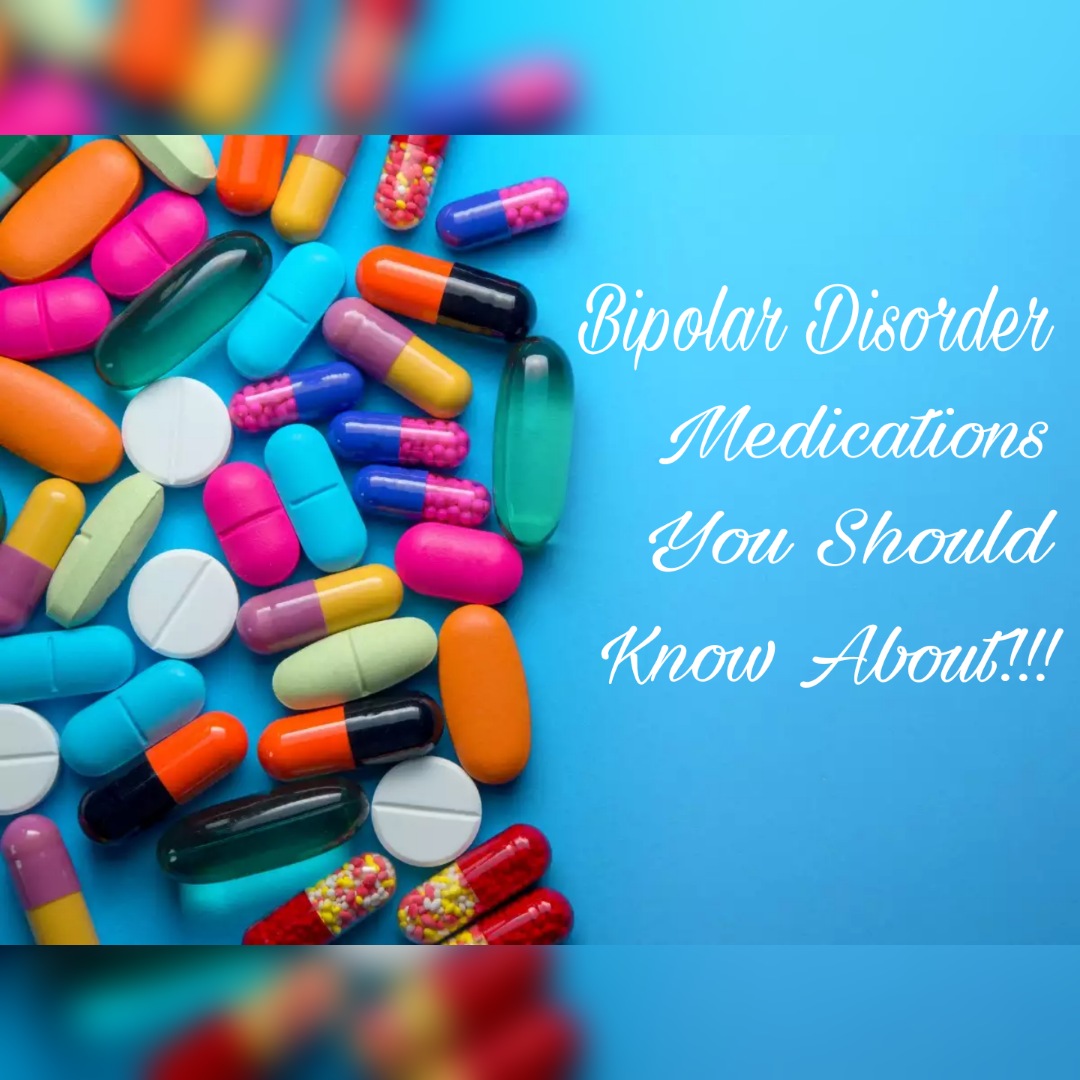EST Mon to Fri.
-
-
0Checkout
Your shopping cart is empty!
- Track Order
02/06/2021
Finding the appropriate medicine or a combination of drugs to control bipolar disorder can be difficult and frustrating for the patient.
Bipolar disorder is a mental challenge characterized by drastic changes in behavior, mood, energy, and feelings. From experiencing severe highs (mania) to lows (depression), the mood changes a lot. Why is finding the right medication so tricky? Even the doctors struggle to set the prescription as different patients react differently to the medicines. Some patients need a single medication or can control the disorder by buying bipolar drugs over the counter, while with others, doctors might have to experiment with different drug combinations.

There are several safe and effective bipolar medications available nowadays. In most cases, a combination of two drugs is being used to help treat Bipolar conditions in individuals. There are two types of bipolar disorder treatments: acute treatment and maintenance treatment. Acute treatment is used to treat mixed, depressive, and manic episodes in a person. In contrast, maintenance treatments are used after an episode has occurred. However, a lot of medications can be used for both treatments. There are other therapies like psychotherapy and ECT (electroconvulsive therapy) which can also help treat patients suffering from Bipolar Disorder. However, in this blog, we will mainly discuss the medications which are used to treat Bipolar Disorder. Scroll down to check out!
Lithium is a mood stabilizer; the oldest medicine being used for bipolar disorder treatment. It generally goes by the name lithium carbonate. It might take weeks or sometimes months before you see any change, and to get the proper results, one should take it regularly.
Although doctors prescribe it to treat bipolar disorder, and it works too, but it still comes with many side effects. These can be dry mouth, weight gain, loss of appetite, nausea, diarrhea, dull feeling, and many more.
Any patient prescribed with lithium is asked to regularly visit their doctor to get their blood lithium levels checked.
Antipsychotics medications are typically prescribed for schizophrenia. But they are also useful for managing the episodes accompanied by psychosis during severe mania or depression. Sometimes they are prescribed in combination with an antidepressant to treat both manic and depressive bipolar.
Although sometimes they are considered to be more effective than other medications, they too have side effects. Side effects include low bp, slow metabolism, restlessness, increased saliva, and in some cases, sexual dysfunctions as well.
Also Read: Know The Types of Bipolar Disorder?
Antidepressant can help in managing the symptoms of bipolar depression. The medicines work on brain chemicals called neurotransmitters. Along with antidepressants, some people take mood stabilizers to prevent mania, as antidepressants can sometimes trigger a manic episode. Certain medicines contain both antidepressants (fluoxetine) and an antipsychotic (olanzapine), which is good for stabilizing the patient's mood.
Some of the serotonin and norepinephrine reuptake inhibitors (SNRIs) include levomilnacipran, venlafaxine, and duloxetine. These can have common side effects like dizziness, dry mouth, insomnia, low blood pressure, etc.
These are used for seizures, but sometimes doctors prescribe them for bipolar disorder as well. These can help in stabilizing moods and manage mania.
Anticonvulsant has its side effects: weight loss, skin rashes, blur vision, memory problems, kidney stones, etc.
Several medicines from different classes of drugs can effectively treat bipolar disorder. If you are looking for the most effective treatment for bipolar disorder, it depends on your case and how well you work with your doctor to set a perfect drug and dosage to control it. Also, sometimes the side effects of these medicines are unbearable. In such cases, immediately talk to your doctor for further changes. All in all, it is a trial-and-error method. Combine the drugs with psychotherapy and stress-management techniques to reduce the symptoms and improve the quality of life.
All Bipolar Disorder medications may cause a few side effects but not necessarily always. The mental disorder is treated with the types of medicines mentioned below:
Antipsychotics
Antidepressants
Mood Stabilizers
You should discuss the possible side effects of any bipolar disorder medication with your doctor.
Potential side effects of anti depressant medications are:
Emotional numbness
Sexual disorders
Weight gain
Increases frequency of mood episodes
Feeling addicted to certain medicines
Potential side effects of antipsychotic medications are:
Metabolic effects
Inflammatory effects
Lower brain volume
Decline in cognitive functions
Tardive dyskinesia
Potential side effects of mood stabilizers are:
Liver failure
Birth defects
Diabetes insipidus
Loss of muscle control
Pancreatic damage
When it comes to treating bipolar disorder, finding the safest medication is critical. Everyone's treatment plan may look different, as there is no one-size-fits-all approach. Lithium is often effective at controlling mood and lowering suicidal ideation for many people, but regular monitoring is essential to ensure thyroid and kidney functions are not affected. Antipsychotics may not be suitable for those with a high risk for diseases related to heart or diabetes due to potential metabolic disturbances, but they may be helpful for others. Working with your healthcare team to find the safest option to control your symptoms while minimizing side effects is important. While medication side effects can be undesirable, your healthcare team can offer ways to adjust your treatment plan to reduce their impact. Finding the right medication may take time and some trial and error, but with the support of your healthcare providers, you can find the best plan for you.
Stay happy! Stay healthy!
B. Pharma
(Dr. A. Sharma, PharmD, is a licensed pharmacist and a medical writer with 10 years of clinical experience. He strives to empower patients to understand their medications so that they become better healthcare advocates.)
Processing currency - All transactions are processed in US Dollars
Copyright ©2008-2025
All Rights Reserved
Comments